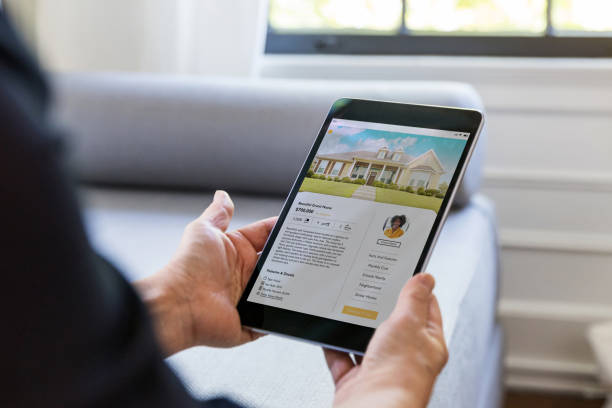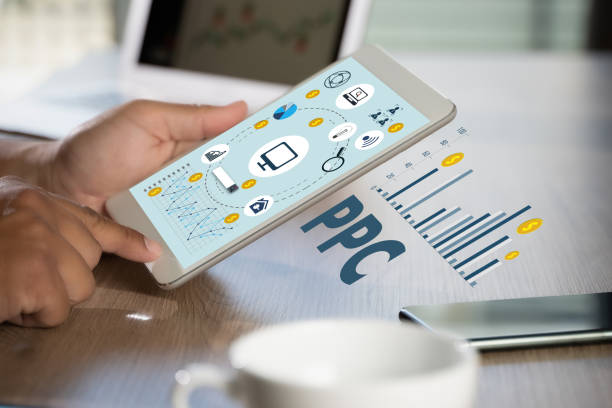Top 10 Small Business Marketing Strategies
Top Marketing Strategies for Small Businesses to Grow and Thrive

Are you a small business owner looking to attract more customers and boost sales? Marketing is crucial for the success of any small business, but with limited resources, it can be challenging to know where to focus your efforts.
This comprehensive guide will explore the best marketing strategies for small businesses, helping you maximize your impact and reach your target audience effectively without breaking the bank.
In this article, we'll dive into proven tactics and practical tips that small business owners can implement to increase brand awareness, drive website traffic, and ultimately grow their customer base. From leveraging the power of social media and email marketing to optimizing for local searches and partnering with influencers, we'll cover a wide range of strategies tailored specifically for small businesses.
Whether you're just starting out or looking to revamp your existing marketing plan, this guide will provide valuable insights to help your business thrive in today's competitive landscape.
Key Marketing Strategies for Small Businesses
- Unleash the Power of Email Marketing
- Optimize Your Website for Local SEO
- Leverage Social Media to Connect with Your Audience
- Create Compelling Content to Engage and Educate
- Partner with Influencers to Expand Your Reach
- Embrace Pay-Per-Click (PPC) Advertising
- Develop a Strong Brand Identity
- Leverage Word-of-Mouth Marketing
- Utilize Google My Business for Local Visibility
- Analyze and Refine Your Marketing Efforts
1. Unleash the Power of Email Marketing
Email marketing is one of the most cost-effective and powerful marketing strategies for small businesses. It allows you to directly reach your target audience, nurture leads, and promote your products or services. But how can you make the most of email marketing?
Start by building a quality email list, segmenting your subscribers based on their interests and behaviors, and crafting compelling subject lines and content that resonates with your audience. Don't forget to include clear calls-to-action and track your email campaign performance to continually optimize your efforts.

2. Optimize Your Website for Local SEO
If you're a local business, optimizing your website for local SEO is crucial. This involves optimizing your website's content, structure, and metadata to rank higher in local search engine results.
Techniques like including your city and state in your title tags and meta descriptions, creating location-specific content, and claiming and optimizing your Google My Business listing can significantly improve your local visibility.
Remember, the higher you rank in local searches, the more likely potential customers in your area will find and engage with your business.

3.Leverage Social Media to Connect with Your Audience
Social media platforms are powerful marketing tools that allow small businesses to connect with their target audience, build brand awareness, and drive engagement.
Identify the platforms where your potential customers are most active and create a consistent brand presence. Share valuable content, engage with your followers, and consider running social media advertising campaigns to reach a broader audience.
Remember, social media is about building relationships, so focus on providing value and fostering meaningful connections with your audience.

4. Create Compelling Content to Engage and Educate
Content marketing is a crucial component of any successful marketing strategy for small businesses. By creating and sharing valuable, informative, and engaging content, you can establish your brand as an authority in your industry, build trust with your audience, and drive more traffic to your website.
Consider various content formats like blog posts, videos, infographics, and podcasts to cater to different preferences and learning styles. Additionally, optimize your content for search engines by incorporating relevant keywords and promoting it across your social media channels.

5. Partner with Influencers to Expand Your Reach
Influencer marketing has become increasingly popular for small businesses looking to expand their reach and tap into new audiences. By collaborating with influencers who align with your brand and have a strong following within your target market, you can leverage their credibility and reach to promote your products or services.
This can be done through sponsored posts, product reviews, or even co-creating content. However, it's essential to carefully vet potential influencers and ensure their values and messaging resonate with your brand.

6. Embrace Pay-Per-Click (PPC) Advertising
Pay-per-click (PPC) advertising, such as Google Ads or social media advertising, can be a powerful tool for small businesses to drive targeted traffic to their websites and increase conversions. By bidding on relevant keywords and targeting specific demographics or interests, you can ensure your ads are seen by highly qualified potential customers. While PPC advertising requires an upfront investment, it can be a cost-effective way to generate leads and sales when executed properly.

7. Develop a Strong Brand Identity
Establishing a strong brand identity is essential for small businesses to differentiate themselves from competitors and build customer loyalty. Your brand identity should encompass your business's values, personality, and visual elements like logos, color schemes, and typography.
Consistently communicate your brand identity across all marketing channels, from your website and social media presence to printed materials and customer interactions. A cohesive and memorable brand will help you stand out and resonate with your target audience.

8. Leverage Word-of-Mouth Marketing
Word-of-mouth marketing is one of the most powerful and cost-effective marketing strategies for small businesses. By providing exceptional products or services and fostering positive customer experiences, you can encourage satisfied customers to recommend your business to friends, family, and colleagues.
Encourage reviews and testimonials, offer incentives for referrals, and make it easy for customers to share their positive experiences on social media.
Building a strong reputation through word-of-mouth can attract new customers and build long-lasting relationships with your existing customer base.

9. Utilize Google My Business for Local Visibility
If you're a local business, claiming and optimizing your Google My Business listing is crucial for improving your visibility in local search results.
This free tool from Google allows you to provide essential information about your business, such as your address, business hours, and contact details, making it easier for potential customers to find and connect with you.
Additionally, you can upload photos, respond to reviews, and even post updates or special offers, further enhancing your online presence and engagement with local customers.

10. Analyze and Refine Your Marketing Efforts
Continuously analyzing and refining your marketing efforts is essential for maximizing your return on investment and ensuring long-term success.
Regularly track and measure key performance indicators (KPIs) such as website traffic, lead generation, conversion rates, and social media engagement. Use this data to identify which strategies are working well and which areas need improvement.
Don't be afraid to experiment with new tactics or adjust your approach based on your findings. By consistently monitoring and optimizing your marketing efforts, you can make data-driven decisions and allocate your resources more effectively.

Key Takeaways
- Develop a comprehensive marketing plan that combines various strategies tailored to your target audience and business goals.
- Leverage email marketing, local SEO, social media, and content marketing to build brand awareness and engage with potential customers.
- Consider partnering with influencers and running targeted PPC advertising campaigns to expand your reach and drive conversions.
- Establish a strong brand identity that resonates with your audience and sets you apart from competitors.
- Encourage word-of-mouth marketing by providing exceptional products or services and fostering positive customer experiences.
- Optimize your Google My Business listing to improve your local visibility and attract nearby customers.
- Continuously analyze and refine your marketing efforts based on data and performance metrics to maximize your return on investment.
By implementing these marketing strategies for small businesses, you'll be well-equipped to attract more customers, boost sales, and achieve long-term growth and success in today's competitive market.
Top Marketing Strategies for Small Businesses FAQ's
What is small business marketing?
Small business marketing refers to the strategies and tactics employed by small businesses to promote their products or services, build brand awareness, and attract new customers. It encompasses various channels such as social media marketing, email marketing, content marketing, and local search engine optimization (SEO).
How can a local business promote itself effectively?
For local businesses, one of the best ways to promote your business is through local SEO, which involves optimizing your website and online presence for local search queries. Claiming and optimizing your Google My Business listing, creating location-specific content, and building local citations can significantly improve your visibility in local search results.
What are the benefits of online marketing for small businesses?
Online marketing offers numerous benefits for small businesses, including increased reach, cost-effectiveness, and the ability to target specific audiences. Through channels like social media, email marketing campaigns, and search engine optimization (SEO), small businesses can effectively promote their products and services, build brand awareness, and drive website traffic without breaking the bank.
Small Business Marketing Strategies
What are some effective small business marketing strategies?
Effective small business marketing strategies include content marketing (creating valuable and engaging content to attract and retain customers), email marketing (building and nurturing an email list), social media marketing (leveraging platforms like Facebook, Instagram, and LinkedIn to connect with your audience), search engine optimization (SEO) to improve online visibility, and influencer marketing (partnering with relevant influencers to expand your reach).
How can business marketing strategies vary for different industries or target audiences?
Business marketing strategies should be tailored to your specific industry, target audience, and business goals. For example, a B2B company might focus more on content marketing, LinkedIn advertising, and email campaigns, while a consumer-facing business might prioritize social media marketing, influencer partnerships, and Google Ads.
Marketing Optimization and Planning
What is marketing optimization, and why is it important?
Marketing optimization involves analyzing and refining your marketing efforts to ensure maximum effectiveness and return on investment (ROI). It involves tracking key performance indicators (KPIs), testing different tactics, and making data-driven decisions to continually improve your marketing campaigns and strategies.
How can a small business develop an effective marketing plan?
To develop an effective marketing plan, start by defining your target audience, setting clear goals and objectives, identifying the most appropriate marketing channels and tactics, allocating a realistic marketing budget, and establishing performance metrics to track and measure success. Regularly review and adjust your plan based on results and changing market conditions.
Marketing Tools and Channels
What are some useful marketing tools for small businesses?
Some useful marketing tools for small businesses include email marketing tools (e.g., Mailchimp, Constant Contact), social media management platforms (e.g., Hootsuite, Buffer), content creation and curation tools (e.g., Canva, Feedly), and analytics and reporting tools (e.g., Google Analytics, SEMrush).
What are the best marketing channels for small businesses?
The best marketing channels for small businesses depend on their specific goals, target audience, and resources. However, some of the most effective channels include social media platforms (e.g., Facebook, Instagram, LinkedIn), email marketing, content marketing (e.g., blogs, videos), search engine optimization (SEO), and local directories (e.g., Google My Business, Yelp).
SEO, Keywords, and Brand Awareness
Why is search engine optimization (SEO) important for small businesses?
Search engine optimization (SEO) is crucial for small businesses as it helps improve their online visibility and rankings in search engine results pages (SERPs). By optimizing their website and content for relevant keywords, small businesses can increase their chances of being found by potential customers searching for their products or services.
How can small businesses build brand awareness?
Small businesses can build brand awareness through consistent branding across all marketing channels, creating valuable and shareable content, leveraging social media to engage with their target audience, participating in community events or sponsorships, and encouraging customer reviews and word-of-mouth marketing.
Marketing Budget and Landing Pages
How should a small business allocate its marketing budget?
When allocating a marketing budget, small businesses should consider their overall marketing goals, target audience, and the most effective channels for reaching them. It's generally recommended to invest in a combination of inbound marketing tactics (e.g., content marketing, SEO) and outbound tactics (e.g., paid advertising, email campaigns). Regularly track and analyze the performance of each tactic to make informed budget adjustments.
What is the purpose of a landing page in marketing?
A landing page is a standalone web page designed specifically for marketing or advertising campaigns. Its purpose is to capture leads or convert visitors into customers by providing focused information about a product or service and a clear call-to-action (CTA). Landing pages are often used in conjunction with paid advertising campaigns, email marketing, or other promotional efforts to drive conversions.
Additional Marketing Tips and Strategies
What are some marketing tips for small businesses?
Some marketing tips for small businesses include: staying consistent with your branding and messaging, focusing on providing value and solving customer pain points, leveraging user-generated content and customer testimonials, experimenting with different marketing channels and tactics, and continuously analyzing and refining your marketing efforts based on data and performance metrics.
How can partnering with other businesses benefit a small business's marketing efforts?
Partnering with other businesses can be a valuable marketing strategy for small businesses. By collaborating with complementary businesses or forming strategic partnerships, small businesses can tap into new audiences, cross-promote products or services, co-create content or marketing campaigns, and leverage each other's strengths and resources.




